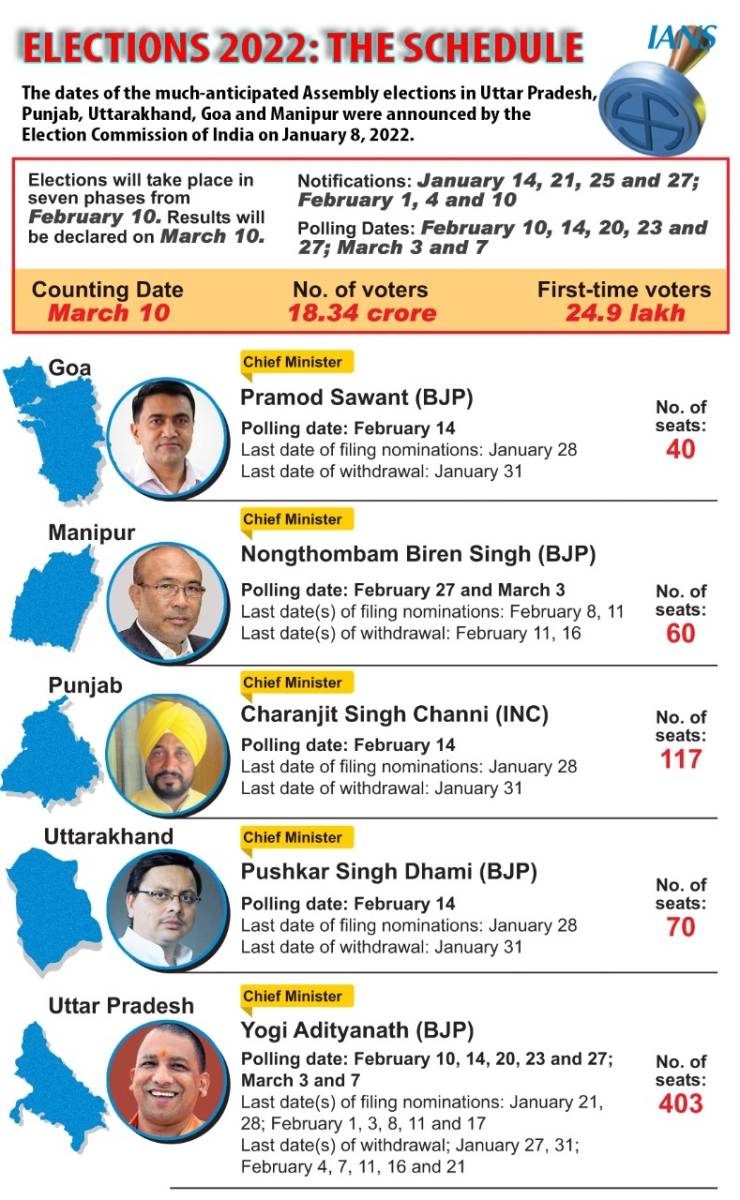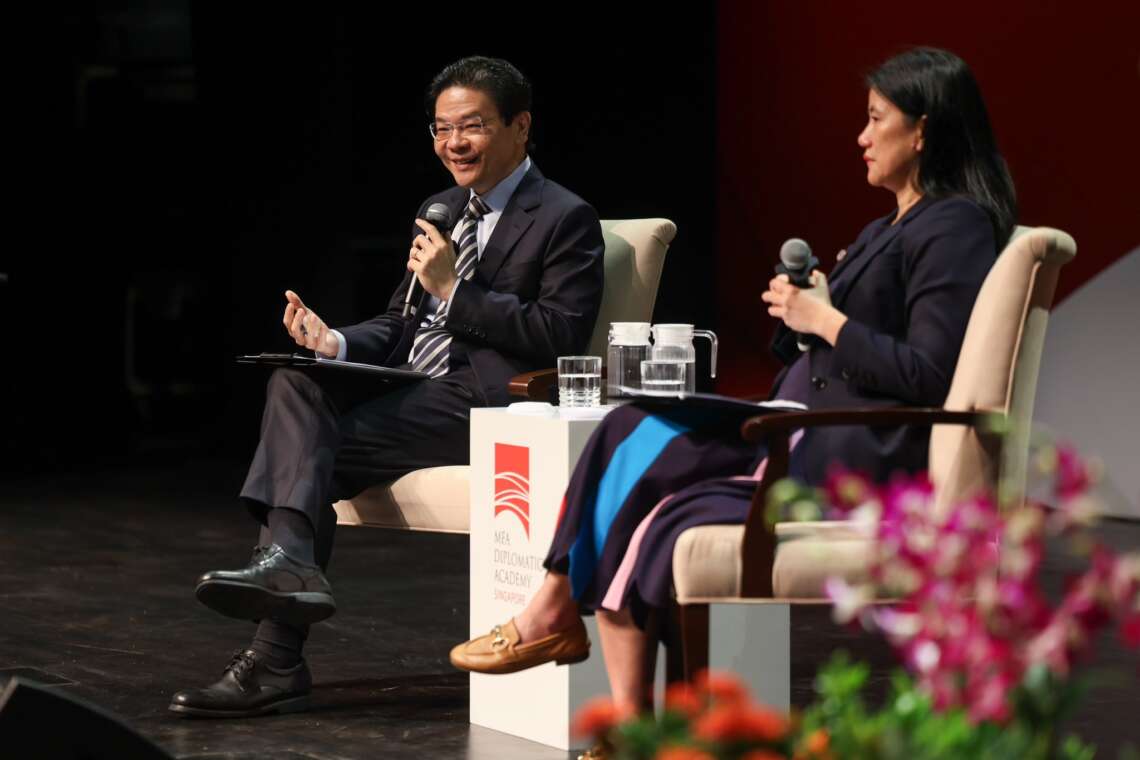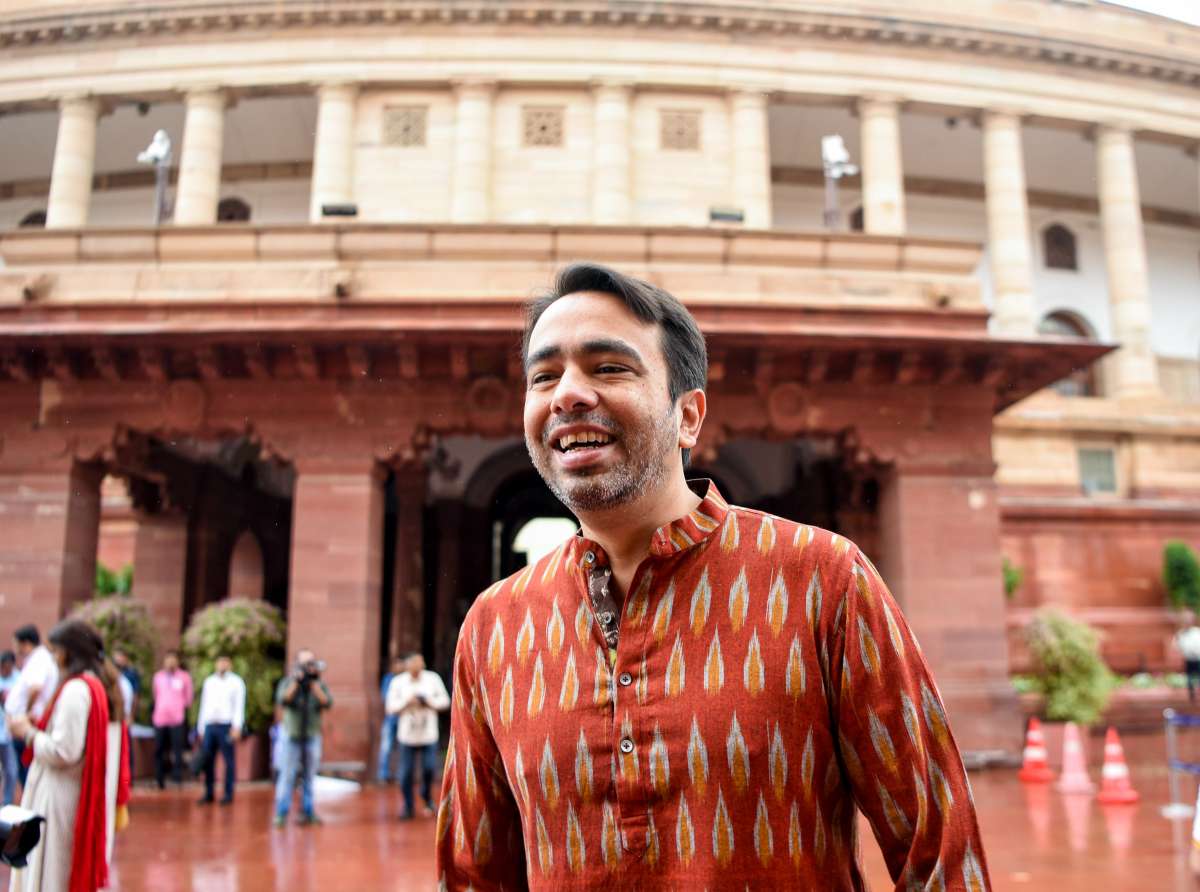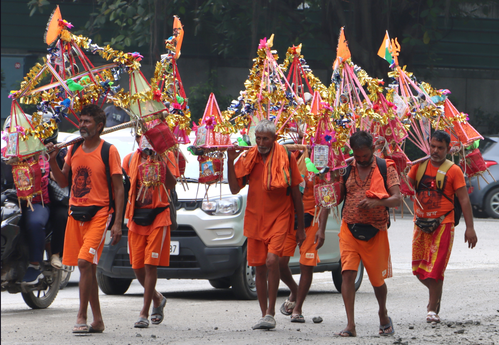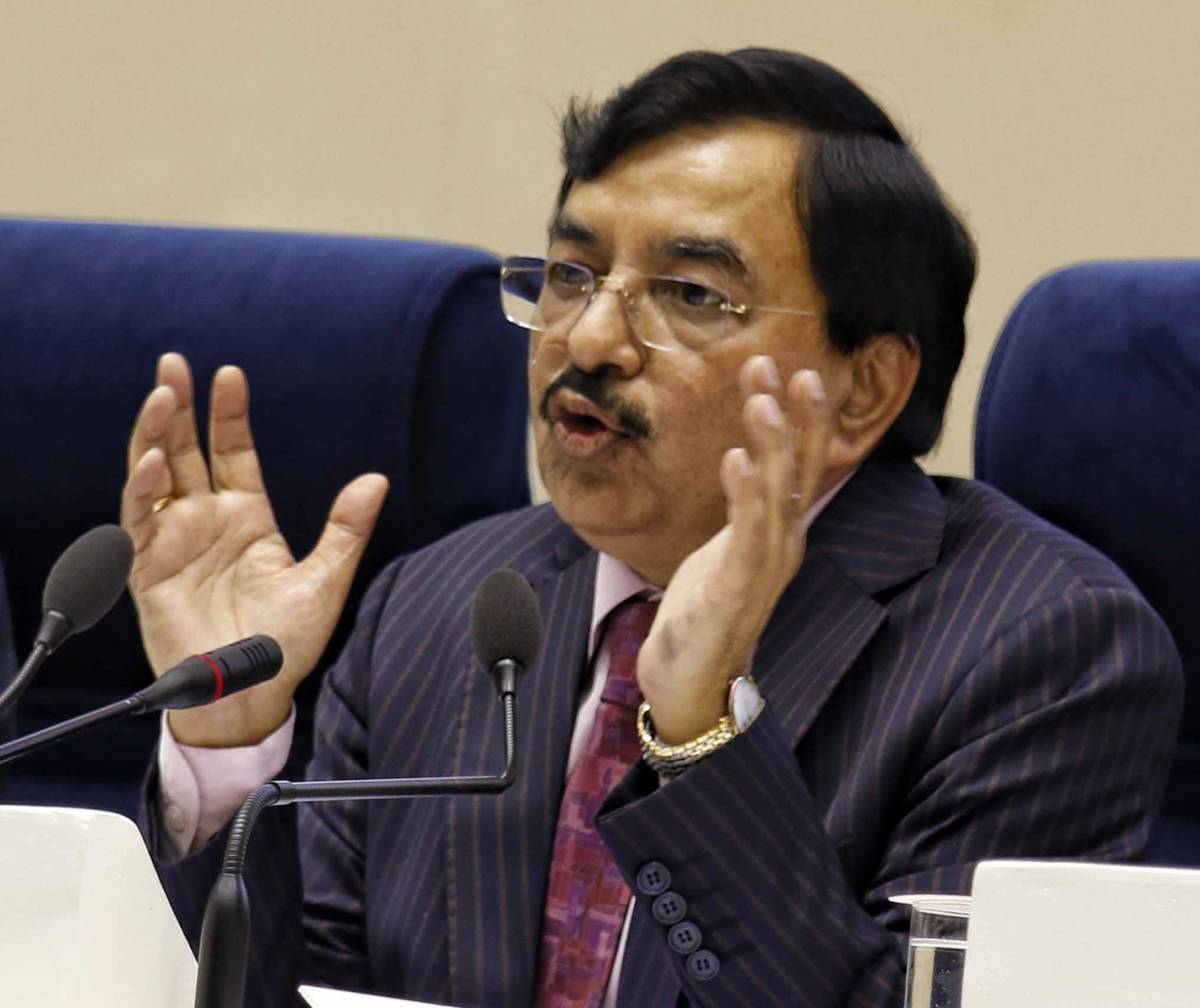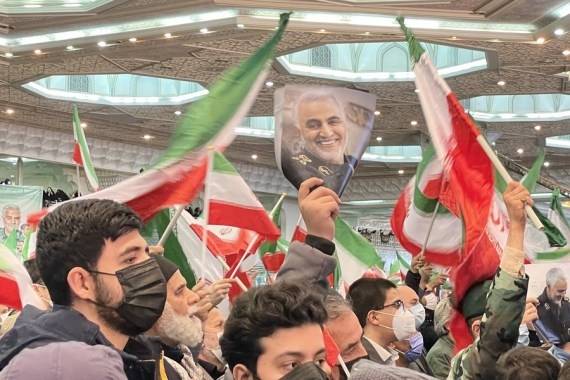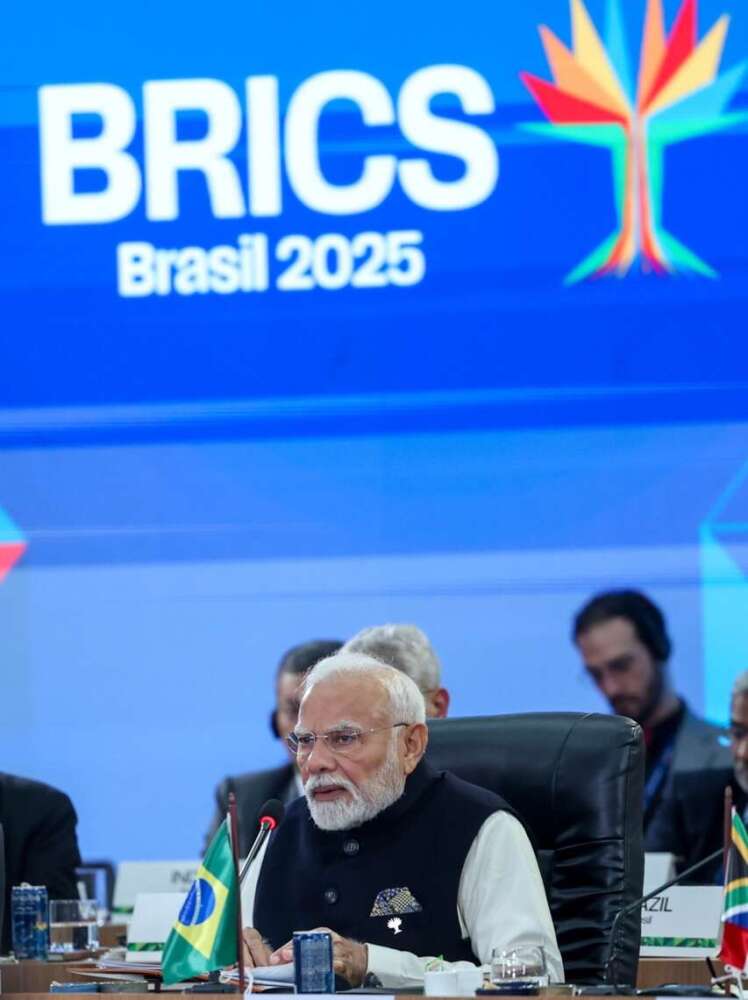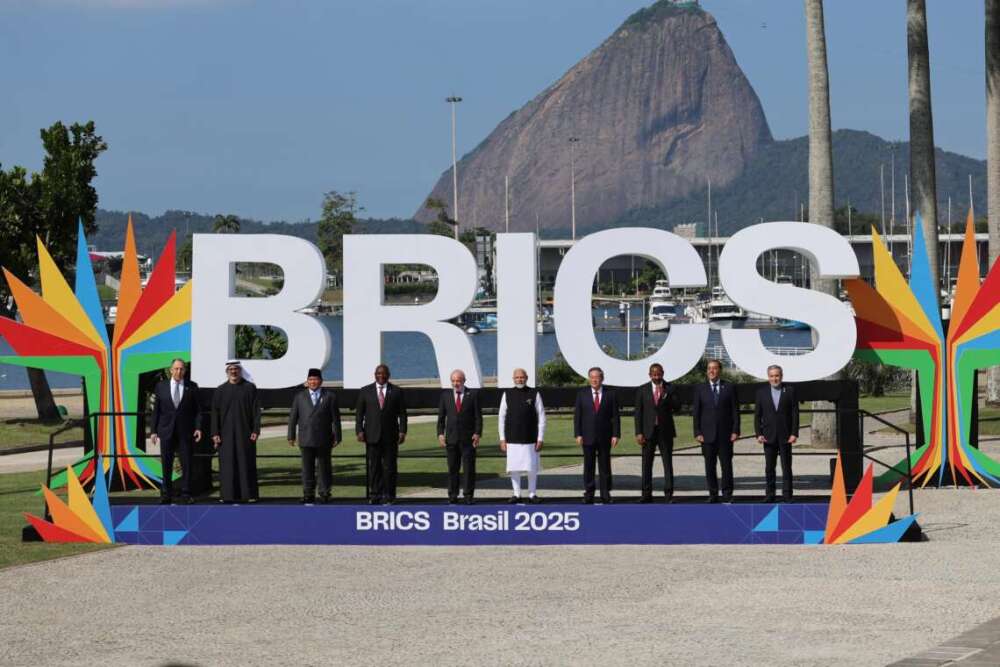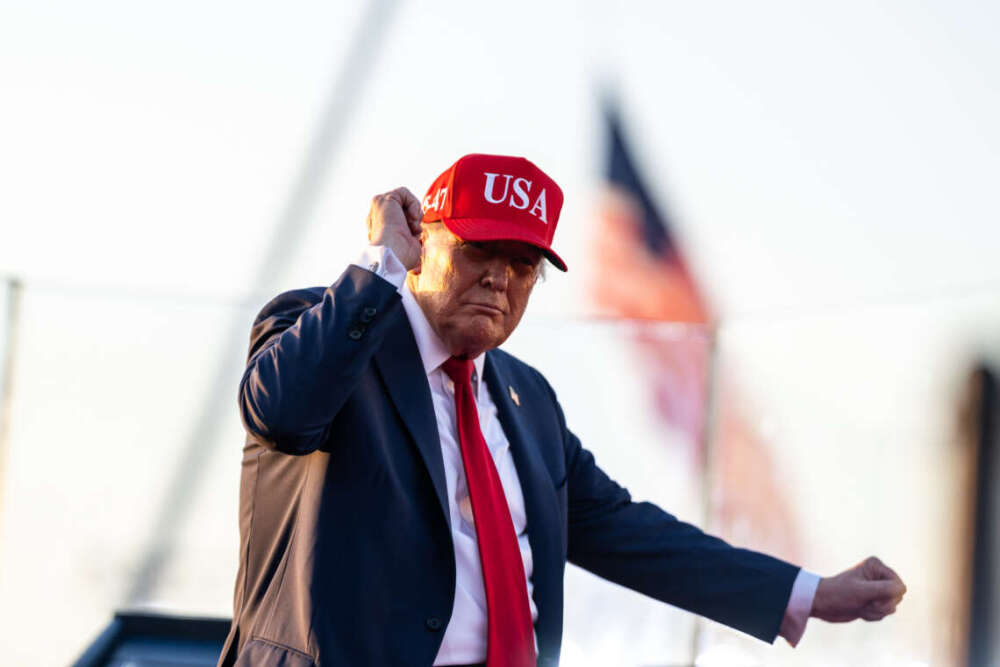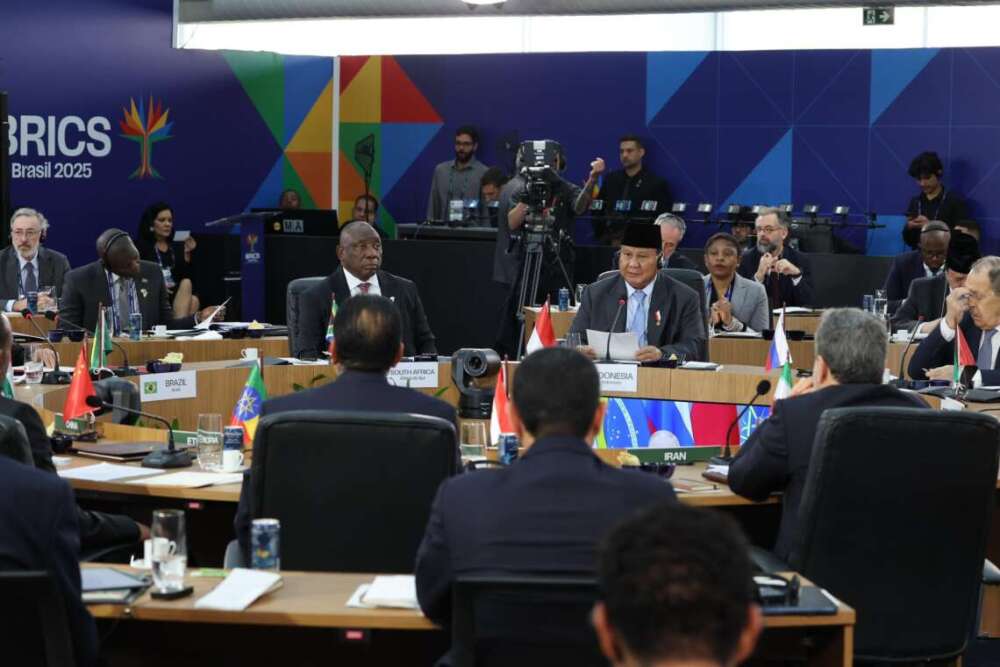Elections to five states Assemblies — Uttar Pradesh, Uttarakhand, Gao, Punjab and Manipur — would be held from February 10 to March 7, and the counting of votes will take place on March 10, reports Asian Lite News
Spanned over seven phases, the elections to five states Assemblies — Uttar Pradesh, Uttarakhand, Gao, Punjab and Manipur — would be held from February 10 to March 7, and the counting of votes will take place on March 10, the Election Commission of India announced on Saturday.
Uttar Pradesh will go to polls on February 10, 14, 20, 23 and March 3 and 7; Punjab, Goa and Uttarakhand would vote on February 14; while Manipur will vote in two phases on February 27 and March 3, said Chief Election Commissioner Sushil Chandra.
The elections would be held following full Covid protocols.
Up to January 15, no physical rallies roadshows, padyatras, or vehicle rallies will be allowed keeping in view the pandemic situation. All parties have been advised to conduct campaigns in virtual mode.
Invoking Article 171 (1), Chandra said that the AAssembly’stenure has to end in five years and, therefore, elections are necessary.
As per the Covid protocols for conducting elections, all elections officials will be double vaccinated, will be given a booster dose, and will also be treated as frontline workers. Booths would be fully sanitised and there will be adequate gloves, sanitizers, etc for the polling staff.
More than 15 crore people in the five poll-bound states have received the first dose of the vaccine, while nine crore people have received both shots.
Polling time has been increased by one hour in all the states.
The final electoral rolls were published on January 5. There are a total of 18.34 crore voters, including service voters. Of these, 8.55 crore are women. The EC has made an effort to increase the number of voters and as a result, all states have seen an increase, with the maximum voter increase in Uttar Pradesh.
There are a total of 24.5 lakh first-time electors and 30.47 lakh senior citizens. The EC has capped the number of voters per booth to 1,250, resulting in an increase in the number of polling stations to 30,334 as the average number of voters per polling booth has decreased.
At least one booth in each Assembly constituency will be managed exclusively by women, Chandra said.
“It will now be mandatory to publish criminal records of candidates a minimum three times in local newspapers and television channels. Even the parties are expected to do so with their candidates,” he said.
Earlier, Chandra said that the Commission has set out three goals for these elections: Covid-free elections, hassle-free voting experience and maximum participation by voters.
The preparations have been going on for at least six months with EC teams visiting poll-bound states.
Model Code of Conduct kicks in
With the announcement of the seven-phase polling for assembly elections for five states on Saturday, the Model Code of Conduct (MCC) has come into force with immediate effect.
The Model Code of Conduct for political parties and candidates will be in force till the completion of the election in the states scheduled to go for polls — Uttar Pradesh, Punjab, Uttarakhand, Manipur and Goa.
The Election Commission’s letter to the Chief Secretaries of the states concerned drew attention to the particular provisions of the MCC relating to the ‘party in power’ which says that the party in power shall ensure that no cause is given for any complaint that it has used its official position for the purpose of its election campaign. “In particular, the Ministers shall not combine their official visit with electioneering work and also shall not make use of official machinery or personnel during the electioneering work,” it said.
The restrictions also include use of government transport, including the aircraft, for furtherance of the interest of the party in power.
The EC letter also drew attention towards the provisions of use of public places, such as parks, maidans etc. and also about who can use the Rest Houses, Dak Bungalows etc.
“The issue of advertisement at the cost of public exchequer in the newspapers and other media and the misuse of official mass media during the election period for partisan coverage of political news and publicity gathering achievements with a view to furthering the prospects of the party in power shall be scrupulously avoided,” it said.
No ministers or other authorities are allowed to sanction any grants/payments out of the discretionary funds from the time elections are announced nor can they lay foundation stone etc. or make any promises for providing any kind of civil facilities.
The Commission also reminded the top state babu about the complete ban on transfer of officials, and in case utmost necessary, to do so with prior permission of the Commission.
The assembly elections for five states – Uttar Pradesh, Punjab, Uttarakhand, Goa and Manipur – would be held in seven phases. Uttar Pradesh would have voting on February 10, 14, 20, 23 and March 3 & 7; Punjab, Goa and Uttarakhand would have polling on February 14 while Manipur will have voting in two phases, February 27, and March 3.
ALSO READ-Maya missing in action, focus on Dalit votes in UP


